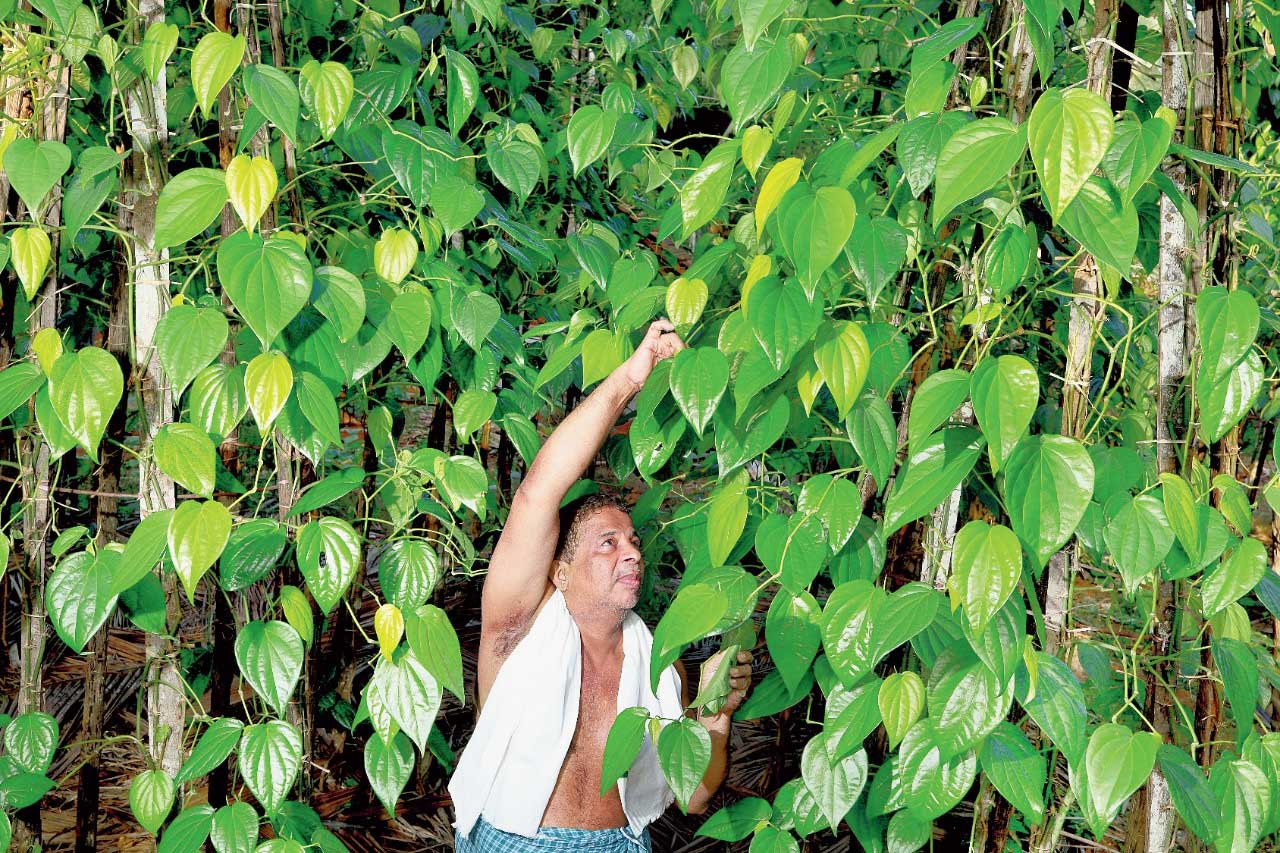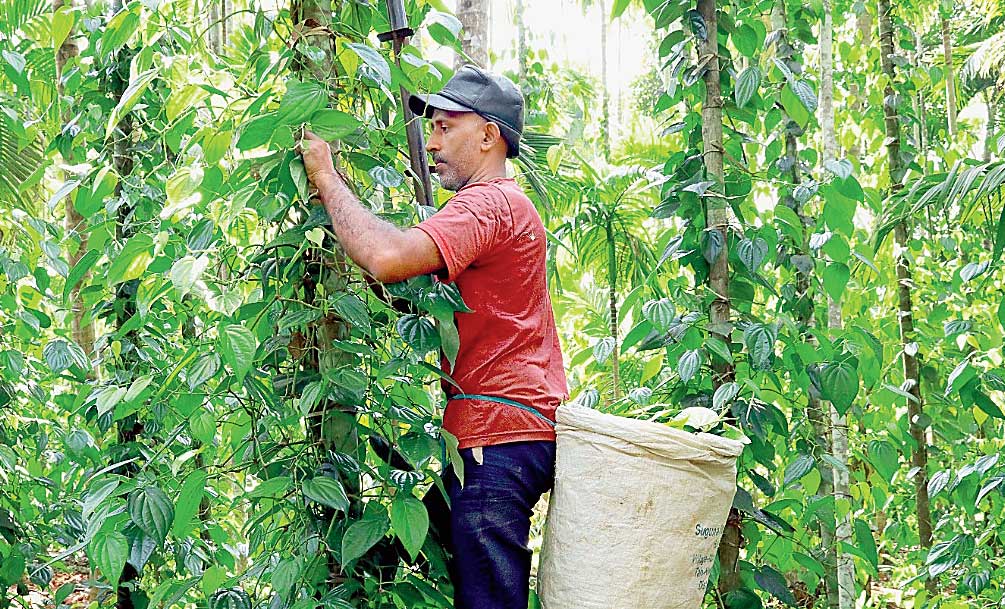Kerala farmers Kalliyath Jamal and Panikkarattil Kunjikoya laugh bitterly when they hear home minister Amit Shah and his party colleagues call their home district, Malappuram, a “mini-Pakistan”.
For BJP leaders, it appears to be reason enough that two-thirds of Malappuram’s population is Muslim. To Jamal and Kunjikoya, residents of Tirur taluk in the district, it sounds particularly ironic because over the past one year, Islamabad has dealt them and their local community of betel farmers a staggering economic blow.
The Tirur betel leaf is famed for its aroma and recently won a GI tag. For generations, Tirur’s 5,000 betel leaf farmers, spread across 37 gram panchayats, had grown the betel leaf across 270-odd hectares and exported most of it to the Karachi, Rawalpindi and Peshawar markets in Pakistan.
Trains and flights would carry 20 tonnes of the finest betel leaf every week from Tirur to Pakistan, with one kilo fetching Rs 500. Their remaining crop — 15 tonnes of second-grade betel leaf — was sold within India, at Rs 150 a kilo.
But after bilateral tensions escalated in February last year following the Pulwama terror attack and the retaliatory Balakot air strike, Pakistan doubled the import duty on Indian betel leaf. This has landed farmers like Jamal and Kunjikoya in a livelihood crisis.
“Pakistan was our sole export market as thousands of paan consumers there preferred only the Tirur leaves. We had never explored the option of exporting to countries like Bangladesh, where too the paan is popular, because Pakistan gave good returns,” said J. Shahul Hameed, joint secretary of the Tirur Betel Leaves Cultivators Forum.
“We continued the exports even amid wars and hostilities. Peace advocates used to quote our example during the times when tensions escalated between New Delhi and Islamabad. All this changed after the Pulwama attacks.”
The hiked import duty has now made the Tirur betel leaf unaffordable for its fans in Pakistan, and stopped exports. So the crop is being sold entirely in the domestic market — mainly in north India — where it is fetching meagre returns. The farmers have plunged into indebtedness, Jamal and Kunjikoya said.
Tirur’s farmers had never had any emotional link with Pakistan, only an economic one, and the manner of its collapse has left them with a deep grievance against Islamabad, Kunjikoya said.

Panikkarattil Kunjikoya at their betel leaf farms in Tirur, Kerala Najeeb Shah
“Malappuram baiters, who call it a ‘mini-Pakistan’, may not have heard about us and our plight. Even the GI tag has failed to find us a better alternative market. Pakistan has darkened our lives and we have no sympathy for it. Why are they making our lives miserable for no fault of ours?’’ he said.
When Rahul Gandhi contested last year’s Lok Sabha polls from neighbouring Wayanad — shortly after Pulwama-Balakot — Shah had described Malappuram as a “mini-Pakistan” citing the green flags fluttering at the Congress leader’s meetings. The flags belonged to a Congress ally, the Indian Union Muslim League.
Farmer Bava Mooppan, who used to export five tonnes of betel leaf a week to Pakistan, said survival had become tough because the production cost was very high compared with the poor prices the local markets offered.
Jamal said that March-April was the peak season for export. He used to send basketfuls of betel leaf by train to Delhi, from where they were flown to Karachi.
When Atal Bihari Vajpayee was Prime Minister, the betel leaves were also taken by bus to Karachi via Amritsar. Tirur’s farmers used to send the leaf wrapped in plantain leaves, in bunches of 100 and packed in baskets filled with wet straw.
“What make our betel leaves distinct are the soil and weather. The leaves have medicinal properties too as they have significantly high chlorophyll and protein content,” Jamal said.
“The GI tag is a result of years of attempts by the Kerala Agricultural University, the state department of agriculture development and farmers’ welfare, and Tirur’s farmers. Our forefathers began this business long before Independence, when trains connected Western Punjab with Kerala.”
Sri Lankan betel leaves have now occupied the Pakistan market, aided by concessions from Islamabad.
Shahul Hameed, another farmer in Tirur, said many growers had already given up cultivating the betel leaf.
“We have made several representations to the Union ministry of commerce and trade in New Delhi. Government-level discussions alone can solve the issue and reopen the possibilities of export to Pakistan. But the prevailing situation gives us no hope,’’ Kunjikoya said.
The farmers have also requested the government to try and find alternative markets for their produce in Bangladesh, West Asia and Africa.











